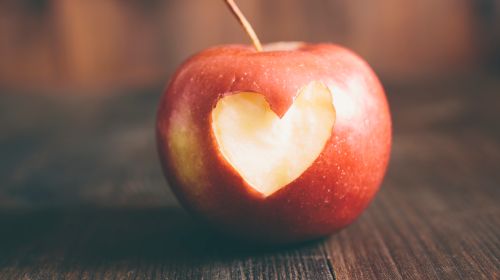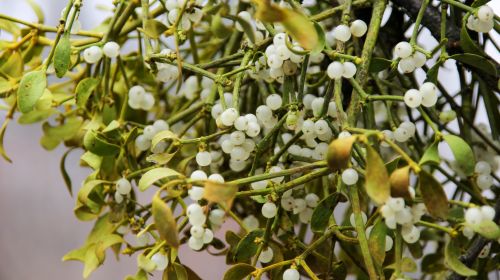According to tumor biologist Dr. Johannes Coy keeps cancer cells at bay and makes them receptive to standard therapies. The principle developed from this is based on healthy nutrition to strengthen those affected who have to undergo cancer therapies. Certain foods are known to have an inhibitory effect on cancer cells, although it is clear that diet alone cannot cure cancer.
- As with low carb, the anti-cancer diet largely avoids carbohydrates and sugar.
- © iStock.com/Lisovskaya
According to Coy, a change in diet for cancer should ideally be carried out before chemotherapy or radiation therapy in order to make the therapies more effective and tolerable. Cancer cells cannot be starved, but their metabolism can be influenced in such a way that the sensitivity to the therapies increases and the chances of recovery improve significantly. The sugar metabolism is important. Cancer cells change the entire metabolism of the body and primarily consume sugar for their own energy supply.
Anti-cancer diet
Since the importance of sugar metabolism on the cells is known, the goal of cancer nutrition is to keep sugar metabolism as stable as possible. The amount of carbohydrates should therefore be reduced and carbohydrates preferred that do not drive blood sugar too high. These recommendations also apply to the diet of healthy people. Because a permanently increased blood sugar and insulin level significantly increases the risk of cancer. That is why it makes sense to continue eating with moderate carbohydrate intake after surviving cancer. This diet also prevents diabetes, obesity and cardiovascular diseases.
What exactly does this type of diet look like in cancer?
Sugar and simple carbohydrates, for example in the form of potatoes, rice and pasta, are to be significantly reduced in the anti-cancer diet. These provide the cancer cells with their food because starch is converted into sugar. For this you should eat as much fat as possible. Fat delays the rise in blood sugar levels through the simultaneous intake of carbohydrates. The fat is not the same as omega 3 and omega 6, which are found in olive oil, fatty fish and nuts, for example, should predominate in the high-fat diet, but butter and cream are also okay. The relationship between the fats is important. Trans fats that are produced during the industrial production of some products, such as margarine, should be avoided. The body suffering from cancer also needs more protein than usual so that the muscles do not break down. The type of diet is very similar to the ketogenic diet.
What foods should I choose?
The anti-cancer diet is said to keep the blood sugar level in the body stable. Food is classified according to whether it increases blood sugar (to be avoided) or not (recommended). There are also foods that are basically healthy, but contain so many carbohydrates that they should only be consumed in moderation. Depending on the type of cancer, it can be individual that certain foods should be avoided, for example long-fiber vegetables such as spinach for colorectal cancer.
The table only gives examples of the respective varieties. Some foods, such as cereals and their flours as well as sugar of any kind, should be avoided as far as possible. With meat and meat products as well as fish and seafood, on the other hand, you can feast to your heart's content.
| recommendable | to avoid | in measure ok | |
| Fruit Vegetable | Root vegetables such as radish, beets, parsnips | bananas | up to 80 g blackberries / strawberries |
Cabbage (broccoli, white cabbage, cauliflower, … also Swiss chard) | Dates / figs | up to 90 g raspberries | |
Leaf and fruit vegetables (Spinach, bell pepper, tomatoes, avocado) | Grapes / raisins Corn | up to 40 g apple / pear | |
| Beans green | Red and white beans | up to 35 g potatoes (firm cooking) | |
| Onion / garlic / leek | Boiled carrots | up to 85 g carrots (raw) | |
| Dairy & cheese | Blue cheese, cream cheese, semi-hard and hard cheese: Gouda, Emmental cheese, mountain cheese, parmesan | sweetened condensed milk cheese spread Scheiblettenkäse | up to 150 ml Ayran up to 100 ml milk / whey up to 125 ml buttermilk / Curd / kefir |
| Sheep and goat cheese | |||
Plain yogurt, sour cream, creme fraiche, (Sour cream | |||
| Soft cheeses such as Brie and Romadur | |||
| beverages | Espresso, water, tea (green / black), chicory | sugared drinks undiluted fruit juices oat milk carrot juice brown ale | up to 100 ml of milk coffee 200-400 ml spritzer up to 150 ml natural soy milk |
Little appetite for cancer?
Some sufferers suffer from loss of appetite or nausea during cancer therapies. Then acidic and fatty foods as well as coffee and alcohol should be avoided – everything that additionally irritates the stomach. Small portions can stimulate your appetite more than a fully loaded plate. If there are problems with certain dishes, other forms can be tried, for example steamed vegetables instead of raw ones. Fruit can be pureed or prepared as a smoothie to make it easier to eat.
Book tips for further reading:
- The new anti-cancer diet, Dr. rer. nat. Johannes Coy, Graefe and Unzer Verlag, Munich 2015
- The anti-cancer book, David Servan-Schreiber, Wilhelm Goldmann Verlag, Munich 2012
Summary
With the anti-cancer diet according to Dr. Coy should be empowered especially for cancer therapies. By stabilizing the blood sugar metabolism, therapies can respond better and chances of recovery can be increased. With this diet for cancer patients, sugar and simple carbohydrates are significantly reduced, and cancer is deprived of food. Foods that do not increase blood sugar significantly are preferred. This includes meat, fish and many types of vegetables.

